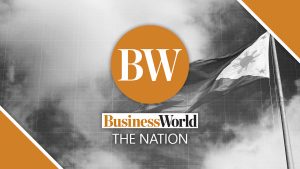Exporters warned of new EU rules on deforestation

EXPORTERS of cattle, soy, coffee, palm oil, rubber and wood will be subject to new European Union (EU) deforestation regulations restricting access to products that benefited from the clearing of forest cover, according to the Department of Trade and Industry (DTI).
“Exporting products to the EU has become increasingly challenging with its new and emerging regulations as part of the EU Green Deal,” the Philippine Exporters Confederation, Inc. said, citing Bianca Pearl Sykimte, director of the DTI’s Export Management Bureau at a seminar.
“These regulations aim to make the EU the first climate-neutral continent by 2050,” it added.
Under the EU Green Deal, exporters of the seven products are required to demonstrate that their products are deforestation-free and not linked to forest degradation or risk not being admitted into the EU.
The deal was first adopted in June to curb forest loss and land degradation, giving companies until Dec. 30 to be compliant, except for micro and small companies which have until June 30, 2025.
The deforestation regulation will cover products derived from the seven commodities, like meat products, leather, chocolate, coffee, palm nuts, and palm oil derivatives, among others.
The regulation takes effect on goods produced after June 29, except for timber and timber products.
Commodities covered by the regulation are required to be deforestation-free and produced in a country with relevant legislation on environment protection. Their producers must also provide a due diligence statement.
Aside from blocked market access, non-compliance could also result in penalties such as fines amounting to up to 4% of the company’s EU turnover, confiscation, or exclusion from public funding or contracts.
The EU was the Philippines’ sixth largest export market in 2023 with $8.4-billion total export sales. — Justine Irish D. Tabile




